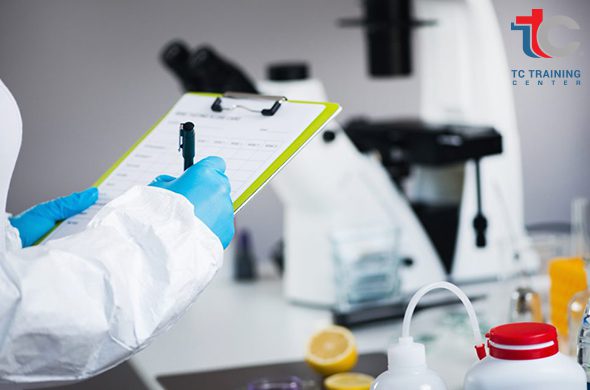HACCP in Food Safety & Hazards Level 2 & 3
Start time
Finish time
Address
Course price

Training Course Overview:
HACCP Level 2 course: Hazard Analysis and Critical Control Point provide an effective and practical management tool for identifying food safety hazards and ensuring that adequate controls are in place. All food business must have an effective HACCP based food safety management system in place.
HACCP Level 3 HACCP for supervisors and managers course has been created with catering, retail and manufacturing industries in mind to ensure employees understand how to manage food safely, prerequisite programs, and different approaches to HACCP and how to develop HACCP plans.
Training Course Objectives:
- The Purpose of this 5 Day HACCP Food Safety & Hygiene Management training course is to enable the Trainer to develop, document, Implement and evaluate food safety management systems in catering & production environment based on the Codex Alimentarius Principles of HACCP (Hazard Analysis and Critical Control Point)
- Enable Trainer to work within a HACCP system, comply with EU legislation and maintain high food safety standards.
- On completion of this training course the Trainer will:
I Understand the principle of the HACCP Food Management System
ii Will become aware of food safety hazards within their workplace
iii Understand how to maintain compliance with HACCP
iv How they can be controlled using HACCP
v Understand how to apply the Principles of HACCP
Target Participants:
- HACCP Level 2 course is suitable for employees at all levels within a food business. The course aims to provide a comprehensive introduction to HACCP and teaches learners about what they can do to help their business implement the system and comply with the law.
- It’s recommended that learners take a Level 2 Food Safety and Hygiene course before beginning this Level 3 HACCP training.
- Relevant sectors: Restaurants, food retail outlets, cafes, takeaway outlets, street food vendors, food counters, food manufacturing
- HACCP Level 3 is suitable for Managers and Supervisors involved in food production including catering or food retail, Head Chefs and Cooks/Supervisors, Managers and Food Business Owners/Staff involved in the construction of the HACCP Plan.
- The course is designed to help you comply with the EU Regulation (EC) No 852/2004 on the hygiene of foodstuffs which requires all food businesses to implement and manage an effective food management system based on the principles of HACCP. Despite Britain’s intention to leave the EU in March 2019, the internationally recognized HACCP principles will remain just as vital to ensuring the highest standards in the food sector.
Course Outlines:
- Introduction to HACCP – what is HACCP? Key terms, legislation, benefits of HACCP and enforcing the law.
- Food Safety Hazards – how contamination applies to HACCP, physical, chemical, microbial and allergenic contamination and cross-contamination.
- Principles and Prerequisites – the 7 principles, examples of prerequisites, effective prerequisites and assessing prerequisites.
- Creating a HACCP System – the basics of HACCP, creating a HACCP team, describing the products and ingredients, identifying the products’ uses and consumers, constructing a flow diagram and confirming the flow diagram.
- The 7 Principles: Hazard Analysis and Control Measures – the 7 principles of HACCP, hazard analysis, determining critical control points, the codex decision tree and establishing critical limits.
- The 7 Principles: Monitoring and Verification – monitoring critical control points, establishing corrective actions, establishing verification procedures, reviewing the HACCP plan and record keeping.
- An Introduction to HACCP – what is food safety management, key terms, what is HACCP, benefits of HACCP and why HACCP is important.
- HACCP and The Law – food safety legislation, training requirements, enforcing the law and due diligence.
- HACCP Alternatives – should I use HACCP? Safer Food Better Business, CookSafe, Safe Catering, ISO 9001:2015, ISO 22000:2005, other national guides and certification schemes.
- Planning a HACCP System – preparing for HACCP, creating a HACCP plan and HACCP success vs failure.
- Food Safety Hazards – how contamination applies to HACCP, types of contamination, physical, chemical, microbial and allergenic contamination, the top 10 causes of food poisoning and controlling the hazards.
- Prerequisite Programmes – what are prerequisites? Examples of prerequisites, effective prerequisites and assessing prerequisites.
- Creating the HACCP System – the 7 principles, creating the HACCP team, HACCP team responsibilities, HACCP team skills, describing the products and ingredients, identifying the products’ uses and consumers, constructing a flow diagram and confirming the flow diagram in the premises.




